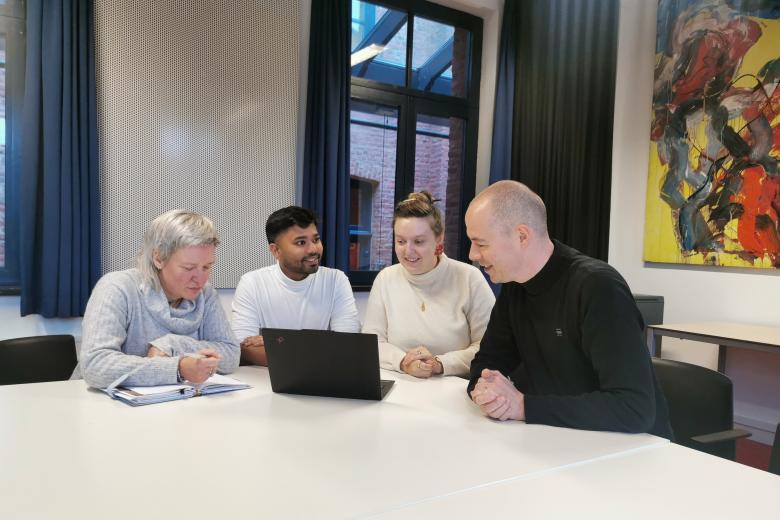New video series: Education research in collaboration
EDLAB, Maastricht University's Centre for Teaching & Learning, has launched a three-part video series that explores how education research can directly strengthen teaching and learning. Each episode highlights a different project where Maastricht University researchers and teaching staff work together to address important questions in higher education.
The series showcases:
- how international classrooms can be designed to support all students (Carla Haelermans & Patrick Bijsmans),
- new approaches to guiding and supervising the thesis process (Therese Grohnert & Laurie Delnoij)
- ways to combine teaching experience with solid research evidence (Boukje Compen & Diana Dolmans).
Together, these stories show why collaboration is essential in education research, and how it leads to practical tools and insights that strengthen Maastricht University’s distinctive Problem-Based Learning approach.
Read more about EDLAB's education research initiatives and projects
Why collaboration matters in education research
The projects highlight several reasons why collaboration strengthens education research:
- Education is complex. Students, teachers, curricula, and contexts interact in unpredictable ways. Collaboration helps capture this complexity from different angles.
- Evidence beats intuition. Everyone has personal experiences of education, but research – enriched by multiple perspectives – helps move beyond assumptions.
- Complementary expertise is needed. Combining big data, interviews, classroom observations, or course design insights makes research richer and more reliable.
- Context matters. What works in one faculty or subject area may not work elsewhere; cross-faculty collaboration reveals these differences.
- The impact is immediate. Education research is applied – findings feed directly back into teaching and supervision, shaping daily practice.
Education research at Maastricht University
At Maastricht University, education is organised around Problem-Based Learning (PBL), the core of our teaching model for more than 50 years. To keep PBL effective and responsive to new challenges, we study it carefully and reflect on how it works in practice. Education research examines what works, for whom, and why, providing evidence that informs real improvements.
Through this series, we show how research and collaboration strengthen UM’s educational model, keeping it innovative, effective, and supportive for both students and staff.
Also read
-
UM builds open education and digital literacy into BKO/UTQ
Maastricht University is taking a practical step to support early-career teachers: open education and digital literacy will be built more firmly into the BKO/UTQ.
-
Celebrating 221 UM teachers who earned their University Teaching Qualification!
Educators from FHML (114), SBE (22), FSE (15), Law (33), FASoS (23), and FPN (14) have officially joined the ranks of UTQ-certified teachers.
-
If a machine can write a flawless essay, what’s left for the writer?
UCM graduate Robin van Wasen traces how writing has shaped her learning, identity, and voice, and asks whether AI, despite its fluency, can ever replace the intent, authenticity, and connection that define human writing.